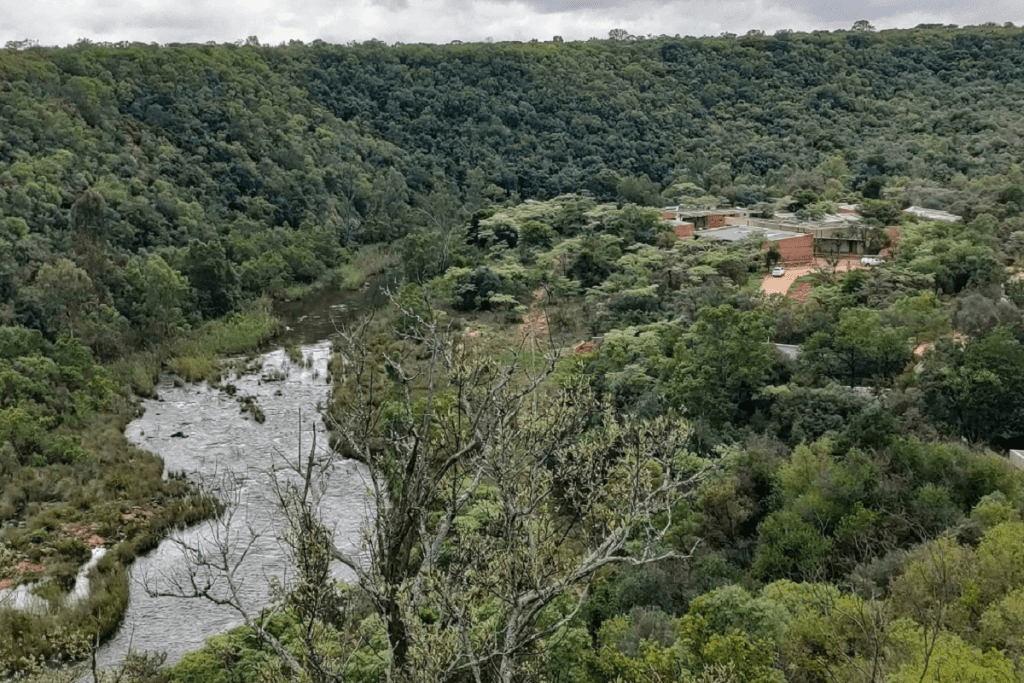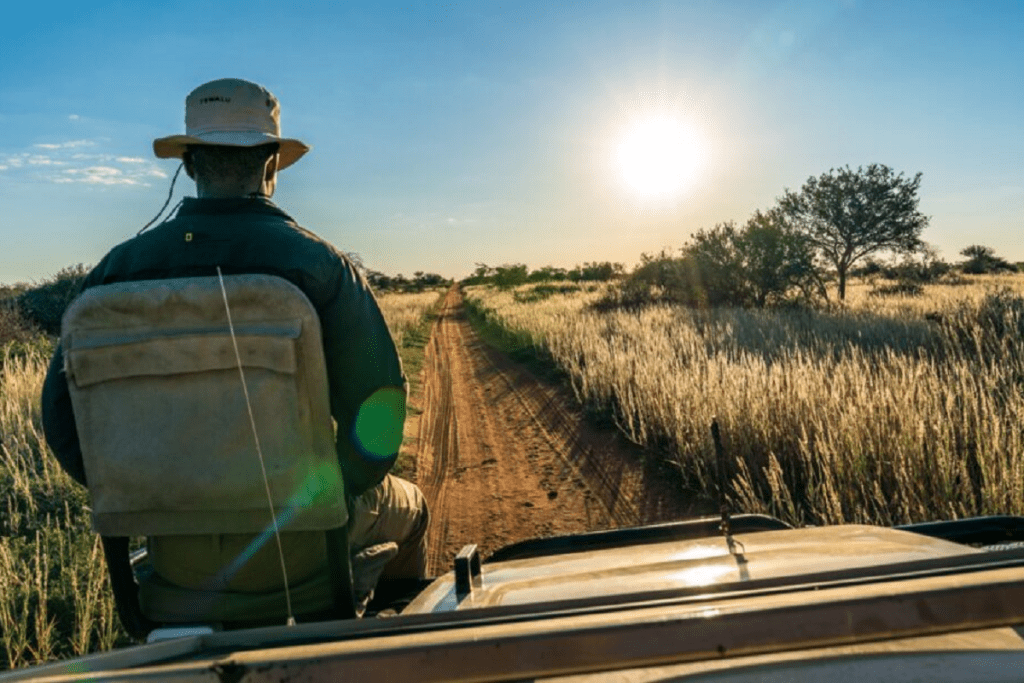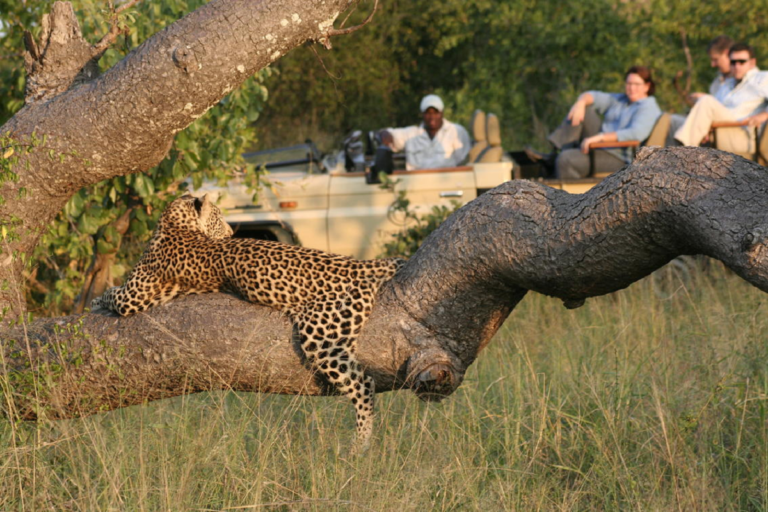No wiggle room exists anymore for superficial business as usual.
That may not sound very profound as an argument against greenwashing, particularly greenwashing by travel and tourism companies.
But when the person delivering that message is the Hollywood actor Ed Norton, people listened.
Speaking earlier this month at the 2022 WTTC Summit in Riyad, Norton, who serves as a United Nations biodiversity ambassador, pulled out all the punches on greenwashing and what he called a “superficial set of sustainable commitments” that are just too easy for the tourism industry to dodge without accountability.
If you didn’t know, Norton has advocated for global biodiversity for more than 15 years.
“The fact that somebody comes to look at wildlife at your camp does not make you an eco-tour operator,” said Norton in conversation with Fahd Hamidaddin, CEO of Saudi Tourism Authority, during the 2022 WTTC Summit in Riyad.
He singled out luxury safari operators that need to question where their energy comes from and whether they’re using too much fossil fuel. They must explore sustainable water sources, and when it comes to being community-based, they need to mean it. Lastly, he stressed that measuring carbon neutrality to reach zero status is vital.
Norton outlined how a U.S. aid grant helped build a 70 kilometer pipeline from a water-dressed community to supply ensuite plunge pools of a well-known luxury safari brand in West Africa. He refused to name the brand but emphatically stated he would never return there.
“It’s just not acceptable,” said Norton, famous for his roles in such films at “Fight Club.”
With Norton’s observations in mind, Skift reached out to some of the largest private luxury safari players in South Africa to understand what their sustainable models entailed. Do they believe their models are superficial greenwashing or actual workable blueprints for establishments needing to make the sustainable grade?
Lapalala Wildernesss Reserve, Waterberg, Limpopo
Whether you want to call it ecotourism, responsible tourism or sustainable tourism, the emphasis should be on lifting a community up and development, said Glenn Phillips, CEO of Lapalala Wilderness and director of the Lapalala Conservation Foundation. Phillips has a long-standing history of shaping responsible tourism guidelines and minimum standards with South African National Parks.

Lapalala Wilderness Reserve is one of the largest private Big 5 game reserves in South Africa, spanning some 48 000 hectares. It was founded in 1981 by Dale Parker and Clive Walker as a conservation area – with its Lapalala Wildeness School being the conservation gem of its efforts.
Sixty percent of the school’s work is sponsored, community-based training done in collaboration with various schools in the Waterberg District. Each sponsored intake includes 60 children at a cost of $3 300 per training camp over 3 days, where they learn about nature conservation, environmental management, zoology and botany.
While the reserve has abundant water thanks to the Palala and Kgogong rivers flowing through it, it faces various energy constraints. The reserve is off the grid and keeps its road networks to a minimum. Also, game vehicles are restricted per commercial site.
They also use a software platform Earth Ranger for its operations and monitoring center to lower its carbon footprint as rangers oversee its ongoing critically endangered biodiversity conservation projects that include rhino and pangolin on the Big 5 reserve.
Tswalu, Kalahari, Northern Cape
To be sustainable, you need to be commercially viable, said Russel Bink, Tswalu CEO who added their “priority is avoiding commercialization at all costs to maintain the lowest ratio of guests to space in a privately protected area in South Africa.”
As South Africa’s biggest private wildlife reserve, Tswalu is set across 114, 000 hectares. This rewilding biodiversity initiative of the Oppenheimer Generations Research and Conservation Foundation was formerly 43 run-down farms in the Southern Kalahari.

“There is no end goal with conservation and restoration. It’s an introspective journey in perpetuity,” said Bink. Tswalu set its own behaviorial standards and targets to show more accountability and transparency in the”$5.7 million invested in nature and people, with a 26 percent conservation contribution to the local economy.” The reserver has just released its first impact statement (for 2021). The tool was developed in collaboration with The Long Run.
“Gone are the days of when guests just want to take a long game drive, looking at animals, having a nice breakfast and sitting by a beautiful pool.”
Bink said more than half of the guests’ fees (from $1 764 per person) go into the reserve’s conservation component and outreach programs. In addition to this, there safari experience exposes guests to the extensive wildlife projects and research, including the Kalahari endangered ecosystem project looking at the impact of climate change on several species.
Tintswalo Safari Lodge, Manyeleti Nature Reserve, Limpopo
Tintswalo Safari Lodges is set across 23 000 hectares of the Manyeleti Private Game Reserve. It was obtained via a concession, hinged purely on the community work done by the owners of this long-standing safari brand.
Their mutualistic relationship with the communities surrounding its boutique lodges is rooted in education and community development, said Alistair Leuner, regional general manager of Tintswalo’s safari products.

Leuner says his tracking department is possibly the best illustration of their education model in action with three of his seven trackers trained and upskilled to full ranger positions through Tintswalo’s bursary efforts. Complete ranger qualifications can cost an estimated $6 000 per student. The lodge has also worked with the over 3,000 children from the community to teach them about conservation and biodiversity through their Rhino Kids program, which highlights and addresses Kruger’s high rhino poaching rates.
In an effort to expose guests to a more authentic safari experience, Tintswalo has helped its rangers and trackers build a day experiences product to their individual village. “It’s developing into an alternative community experience. They keep all revenue generated. We’re outsourcing it to them but also marketing it for them. So overall, it will be the village that benefits.”
Being in a water-destressed region, the lodge also raises money to sink boreholes in the community, with guests encouraged to get involved through donations.
While these are just a few examples, Africa is a complex mix of countries, each with its unique challenges. Ultimately a conservation journey to ensure an authentic, responsible tourism experience starts at the property level. But it also requires ongoing commitment and buy-in, with accountability necessary at every step of the safari value chain, especially those who sell and package these experiences.
You can watch the full conversation between Norton and Hamidaddin at 03:46:00 below.



